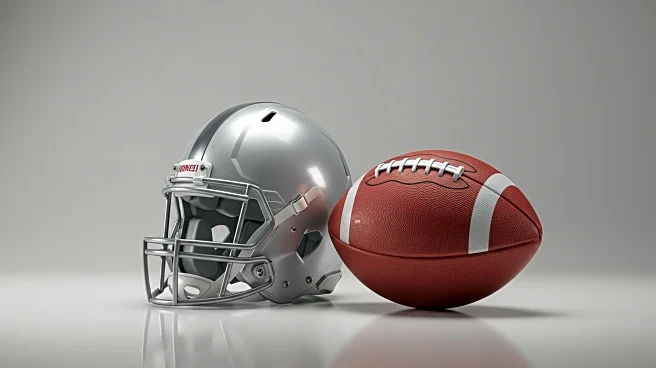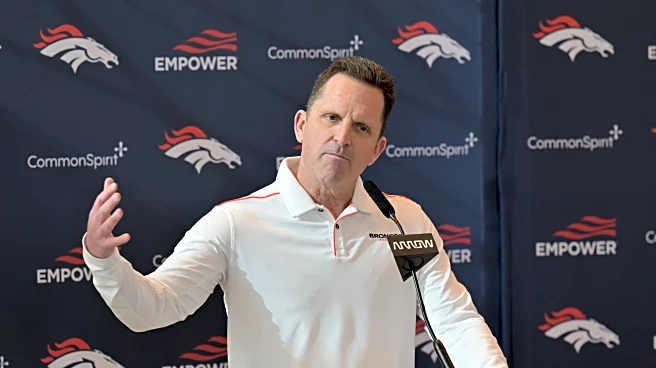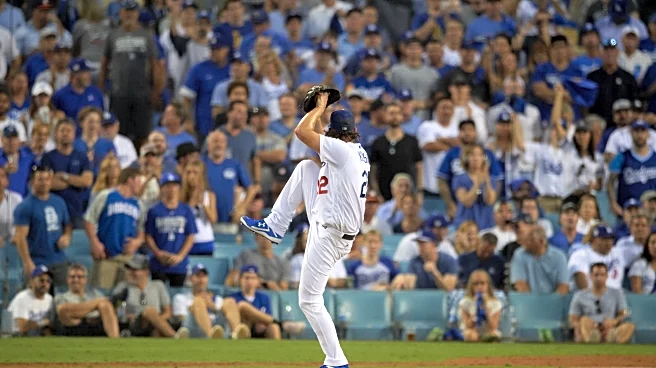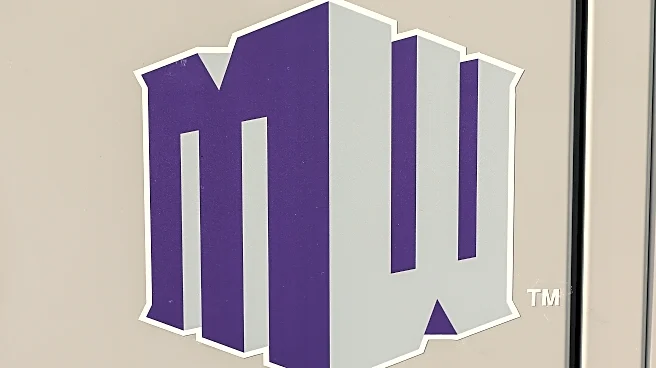What's Happening?
J.J. McCarthy, a former Michigan quarterback, recently made comments that have added fuel to the longstanding rivalry between Michigan and Ohio State. McCarthy, who was drafted by the Minnesota Vikings in the 2024 NFL Draft, praised his new teammate Donovan Jackson, an offensive lineman from Ohio State, for his performance during training camp. However, McCarthy also took the opportunity to question the toughness of Ohio State players, a sentiment that resonates with the fierce rivalry between the two schools. Historically, Michigan leads the rivalry with a 62-52 record, including six ties. McCarthy himself has a successful record against Ohio State, having gone undefeated in three matchups during his college career.
Why It's Important?
The comments from McCarthy highlight the intense rivalry between Michigan and Ohio State, which is one of the most storied in college football. Such remarks can intensify the competitive spirit and anticipation for future matchups between the teams. For McCarthy, these comments serve to bolster his image among Michigan fans while potentially motivating Ohio State players to prove their toughness on the field. The rivalry not only impacts the players and fans but also has broader implications for college football dynamics, influencing recruitment, team morale, and media coverage.
What's Next?
As the 2025 College Football season approaches, McCarthy's comments are likely to be one of many exchanges between Michigan and Ohio State supporters. The teams are scheduled to face off on November 29th, a game that will be closely watched given the recent history of Michigan victories. Both teams will be preparing intensely, with Ohio State possibly using McCarthy's remarks as motivation to reclaim their dominance in the rivalry. The outcome of this game could have significant implications for both teams' standings and morale.
Beyond the Headlines
McCarthy's comments also reflect the cultural and psychological aspects of sports rivalries, where verbal exchanges can play a role in shaping team identities and fan perceptions. Such rivalries often extend beyond the field, influencing alumni relations, merchandise sales, and even university branding. The psychological warfare inherent in these rivalries can affect player performance and fan engagement, making them a critical component of college sports culture.











